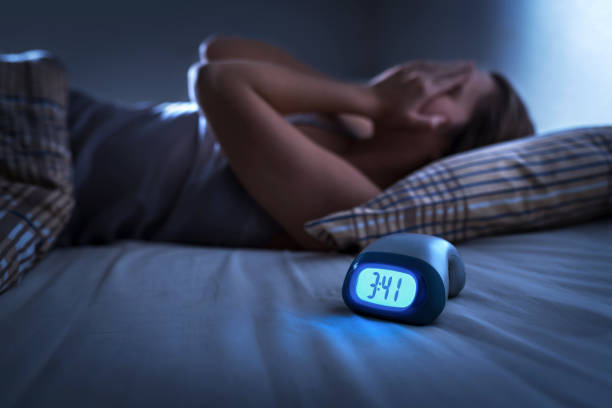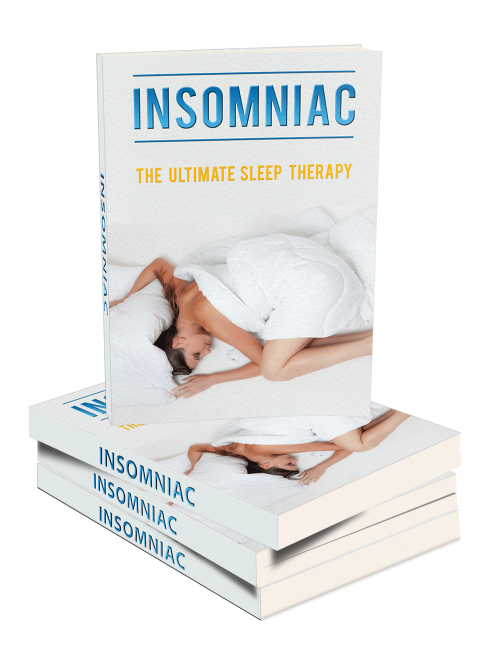Struggling with Insomnia? Here’s How to Finally Take Back Control of Your Sleep
You’re Not Alone If You Can’t Sleep

Millions of people lie awake at night, exhausted but wired. Whether it’s racing thoughts, a restless body, or just an inability to wind down, insomnia is more than frustrating — it can affect your health, mood, and quality of life. The good news? You can retrain your brain and body to sleep again — naturally.
1. What Insomnia Really Is (and Isn’t)

People often think insomnia is just “having trouble sleeping,” but it’s much deeper than that. It’s a disruption in the body’s natural sleep-wake system — often caused by chronic stress, poor sleep hygiene, mental overload, or neurological patterns stuck in high-alert mode.
There are two types:
- Acute insomnia: Often tied to short-term stress or changes (like a breakup or jet lag).
- Chronic insomnia: When sleeplessness lasts 3+ nights a week for 3+ months.
What insomnia isn’t: laziness, just needing to relax more, or something that can be fixed with a glass of wine. It’s a complex condition, and you need more than just tiredness to overcome it — you need a plan.
2. Why Your Brain Won’t “Shut Off” at Night

Your body may be exhausted, but your mind’s still running a marathon. This is one of the most common signs of insomnia — a hyperaroused brain. The culprit? It’s often a combination of:
- Excess cortisol (stress hormone)
- Overthinking and anxiety
- Blue light disrupting melatonin production
- Poor bedtime rituals
Instead of sliding into sleep, your brain’s in “problem-solving mode.” It replays conversations, stresses over tomorrow, or fixates on past regrets. If this sounds familiar, your nervous system likely needs help switching off — not just physically, but neurologically.
That’s why behavioral therapy and brain-training tools are so effective. You don’t just need to relax — you need to teach your brain how to de-escalate.
3. Natural vs. Artificial Remedies — What Actually Works?

Sleeping pills may knock you out, but they often disrupt REM cycles and leave you groggy. Worse, your brain becomes dependent on them. Over time, they can worsen the root problem.
Instead, natural methods aim to reset the sleep system:
- Magnesium and L-theanine help relax muscles and reduce mental chatter.
- Valerian root, chamomile, or lemon balm reduce nervous system tension.
- Breathwork, progressive relaxation, or meditation helps recalibrate your pre-sleep state.
- Sleep education (like in the Insomniac guide) empowers you to understand and shift your patterns.
The key is consistency — and choosing approaches that work with your biology, not against it.
4. Build a Personal Sleep Ritual That Works for You

Most “sleep hacks” don’t work because they’re generic. A real sleep ritual is personalized — it helps your unique brain wind down naturally. Here’s how to build one:
- Set a wind-down time 1 hour before bed.
- Disconnect from screens and stimulation.
- Engage in calming activities: light stretching, journaling, a warm shower, or dim lighting.
- Use the same cues nightly — consistency helps trigger the brain’s sleep switch.
Over time, your body will learn: “When I do this, it’s time to sleep.” That’s powerful. The Insomniac ebook even includes a checklist to help you craft your ideal sleep ritual from scratch.
5. Want a Proven Step-by-Step Plan?

If you’re tired of trying random tips from TikTok or Reddit and just want something structured — that’s exactly what Insomniac: The Ultimate Sleep Therapy was built for.
Here’s what you get:
- ✅ Chapter 1: The Science Behind Insomnia
- ✅ Chapter 2: The Brain of an Insomniac — What’s Really Going On
- ✅ Chapter 3: “Sleepstaver” — Understanding the Sleep Enemy
- ✅ Chapter 4: The Cure — Natural & Artificial Remedies Explained
- ✅ Chapter 5: Lifestyle Modifications That Create Real Change
- ✅ Chapter 6: Switching Off — Training Your Mind to Let Go
- ✅ Bonus #1: Insomniac Checklist (value $7)
- ✅ Bonus #2: Insomniac Mindmap (value $9) — perfect for visual learners
This is not just another ebook. It’s a full breakdown of the insomnia puzzle, written in clear, actionable language.
👉 Check it out here
You Deserve Deep Sleep — Not Just Tips

The truth is, insomnia robs you of more than just sleep. It takes your focus, energy, peace of mind, and joy. But it doesn’t have to stay that way.
You can absolutely retrain your body and brain — without medication, without guessing, and without wasting months trying hacks that don’t work. All you need is a better plan, one that addresses the real causes and helps you switch off for good.
If you’re ready to take your nights back, Insomniac: The Ultimate Sleep Therapy is a great place to start.

Written by Casey Bennett
When not researching sleep strategies, Casey enjoys journaling, trail running, and testing new herbal teas.
Updated April 20th
Casey Bennett is a health and wellness writer specializing in sleep, stress, and daily recovery. With a background in behavioral psychology and firsthand experience managing insomnia, Casey focuses on practical, science-backed advice that helps readers take control of their sleep. From bedtime rituals to natural remedies, Casey’s writing is aimed at helping real people rest better — one night at a time.






